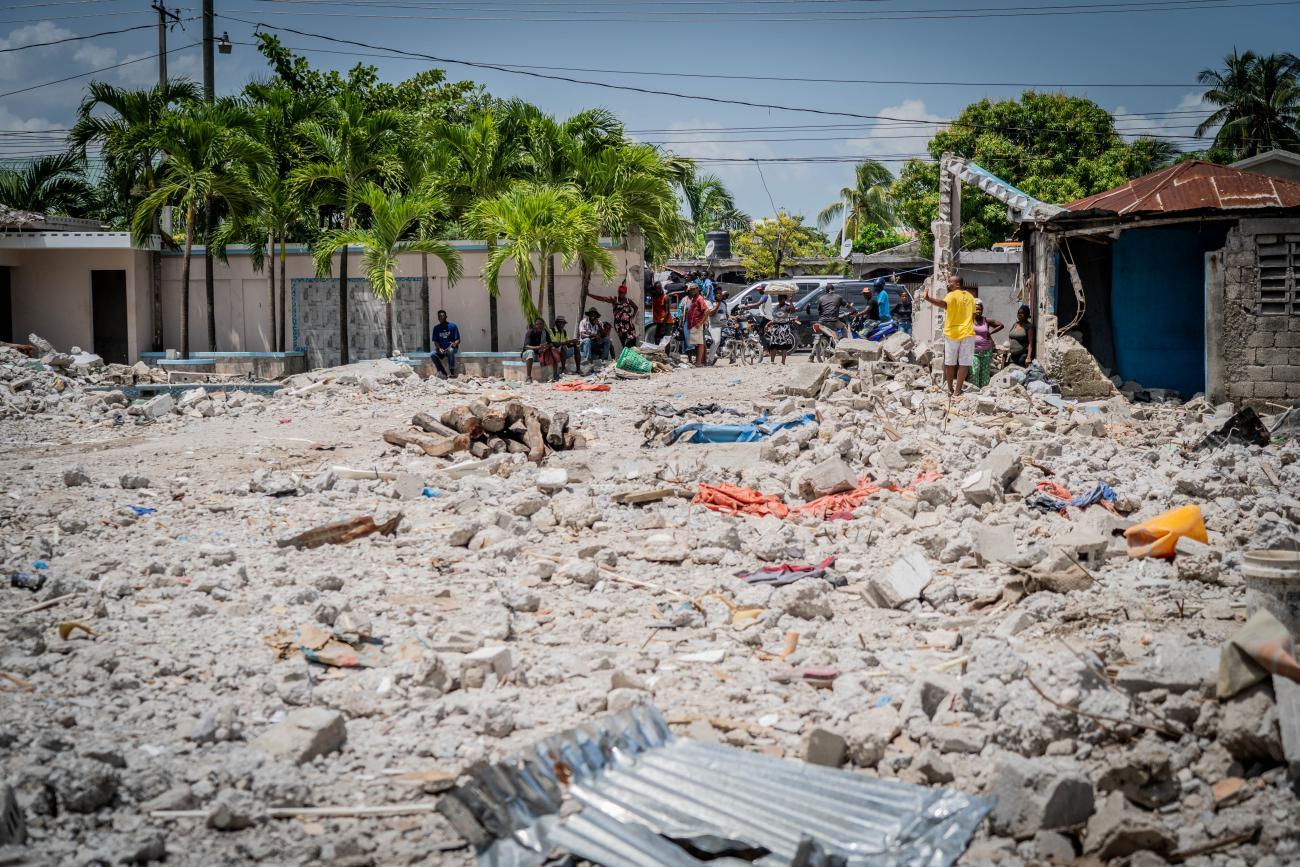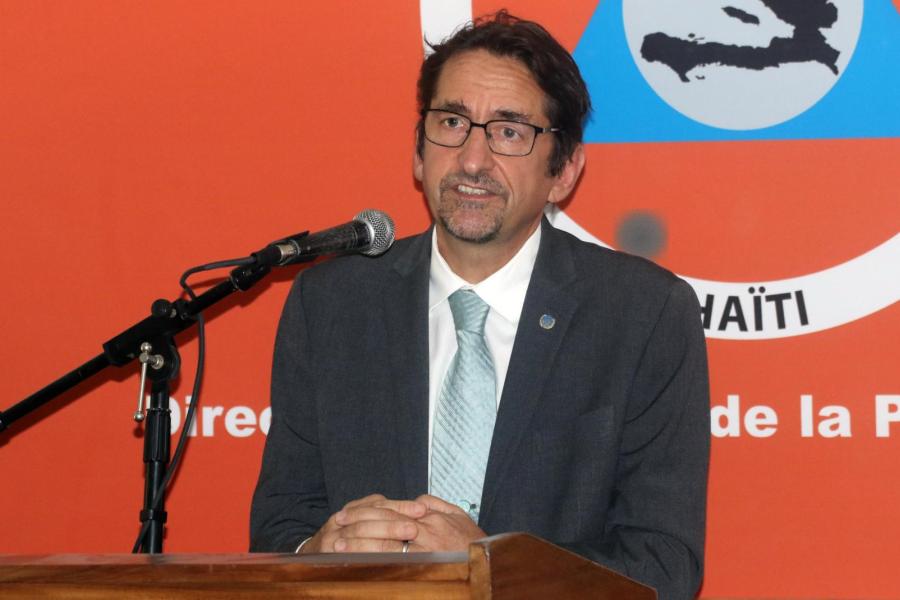Haitians and Haiti are at the centre of the UN's work

"Nous allons poursuivre et accentuer cette relation de travail étroite."
I would like to express my deep gratitude to all those who have been on the front line in responding to the ongoing crisis in Haiti from the very first moments, first and foremost to local communities and organizations, local authorities, State services, both decentralized and central, as well as to colleagues from the United Nations, NGOs, the private sector and all those who have stepped in, both nationally and internationally, to participate in and contribute to the relief efforts so far. Thank you for responding so quickly and generously to the crisis.
We wish to show our support to and solidarity with the Haitian people and with the people of the three departments hard hit by the earthquake.
I would like to highlight the remarkable leadership of the Government in responding to the crisis, the Prime Minister, and in particular the leadership of the Department of Civil Protection and the ministries and institutions involved. Despite the multiple challenges facing the country and your Government, national and local authorities have been at the forefront of leading the response.
We will continue to strengthen this close working relationship. In the implementation of this emergency humanitarian appeal, and also for the following recovery and reconstruction phases, and taking into account the many lessons learned from previous disasters and responses, including the 2010 earthquake, it will be fundamental for all of us to:
- Support national leadership;
- Work within the framework of effective coordination arrangements at national, departmental and local levels. I take this opportunity to highlight once again the outstanding coordination work done by the Civil Protection Directorate General;
- Support national and local institutions, structures and systems;
- Draw on Haitian capacity, expertise and knowledge to ensure a contextualized response. I was in Maniche. Many people say that help is coming: CASEC (Board of Directors of the Communal Section), ASEC (Assembly of the Communal Section), etc.;
- Support local production and the Haitian economy as part of the response and the reconstruction process;
- Take into account a number of fundamental dimensions in the response to this crisis, including the key role of women and women's organizations, targeting of the most vulnerable, including those living with disabilities, as well as protection needs.

This brings me to the link between humanitarian actors and development actors in Haiti, most of whom are often the same. You are aware of the cyclical nature of climate shocks in Haiti. We must build on the lessons learned from previous crises and link the short-term, emergency response with long-term approaches. We need to take this into account in all areas of our programming, to avoid disconnecting emergency actions from recovery measures, for example, in the area of temporary shelters and housing reconstruction. In this regard, I would like to commend the action of the government, and in particular of the Ministry of Planning and External Cooperation (MPCE) as well as of partners, for the swiftness with which the recovery and reconstruction needs assessment process was launched through the post-disaster needs assessment (PDNA) process. This should make it possible to effectively link the emergency phase with the recovery phase.
I would also like to take this opportunity to recall that avoiding disasters is not impossible. The disasters that we describe as natural are not natural at all. A natural hazard only becomes a disaster when measures to reduce its impact – i.e. building codes compliance, urban planning, resilient infrastructure, appropriate public policies, etc. – are not put in place. We must not resign ourselves to looking at natural hazards turn into natural disasters - This is not inevitable. This earthquake is a vibrant reminder for Haiti to be even more clearly and proactively committed to embracing risk and disaster management and adaptation to climate change as national priorities, including at the national leadership level and in the long run.
For humanitarian action to meet emergency needs, urgent funding is required, hence the launch of this emergency appeal today. Without funding, humanitarian partners will not be able to sustain critical life-saving and recovery interventions in the coming weeks and months, including food aid, shelter support, provision of effective health care, education support during the back-to-school season, livelihood support, and economic recovery, particularly in the agricultural sector, to ensure that farmers do not miss the agricultural season nor are forced to decapitalize even more.
Despite the multiple crises going on around the world and the COVID-19 pandemic, which are putting pressure on donor countries, it remains essential to support Haiti in responding to this crisis, which has just hit the country so hard. We thank the technical and financial partners for their support and generosity.


















